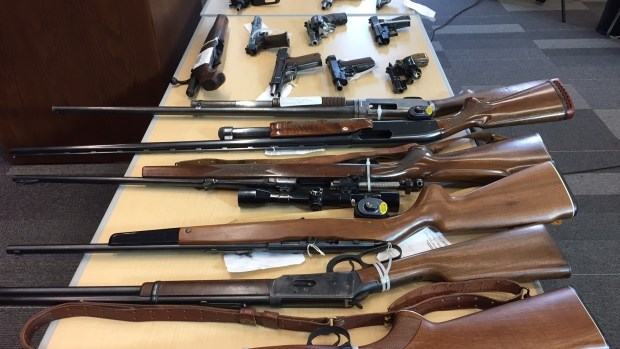Saskatchewan police agencies reminded people that they can turn over their unwanted firearms without penalty — regardless of how they were acquired — during an amnesty period.
The Saskatchewan Association of Chiefs of Police (SACP) is aiming to improve public safety by running a province-wide gun amnesty program in partnership with the Ministry of Environment.
Officers reminded people not to deliver their unwanted weapons during the grace period. Instead, residents can call the nearest police service, RCMP detachment or provincial conservation office and an official will come and collect the guns.
The amnesty program isn’t targeted at people who store their guns “responsibly,” rather it’s for people who have come upon war relics, discovered old guns on their property or inherited weapons, and have no use for them.
There is no incentive for the initiative and the weapons will be destroyed at the end of the program.
The program was inspired by Regina’s two-week municipal gun amnesty program in 2017. During that time, police collected 157 firearms. People turned in 81 rifles, 30 shotguns, 25 restricted or prohibited firearms and 21 airguns, pellet guns or starter pistols.
Police have said they don’t expect criminals to turn over their guns, but hope the amnesty will prevent crooks from getting more weapons through theft.Â
Legally used firearms are a “legitimate part of Saskatchewan life, particularly in our rural areas for hunting, sport shooting, predator control and for some, their livelihood,” said SACP Assistant Commissioner and RCMP officer Curtis Zablocki. However, the province also has some of the highest rates of people accused of violent firearm-related offences. Saskatchewan has the highest provincial crime rate in Canada – and the most severe crimes, too
The program is scheduled to run March 29 to April 27.




